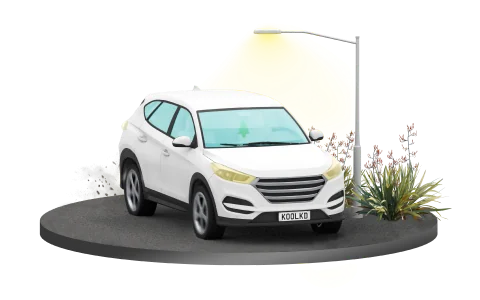Agreed value
This is the amount you and your insurance company agree to insure your car for. It offers greater certainty over how much you get to spend on a replacement vehicle if your car is completely written off.
Agreed value has higher premiums than market value, but many vehicle owners pick it for the added security. People who have purchased a brand new car, or have made pricey modifications, tend to buy agreed-value cover. It gives you the freedom to include the costs of additions and accessories, as well as balancing out the effect of depreciation over time.
It's also a good option for people who still have money owing on their car loan. Depending on when you have an accident, the market value of your car might not cover the total repayments you have left and you could end up out of pocket.
Agreed value is not:
- any amount you’d like to insure your car for. The sum has to be agreed to by your insurance company and should reflect the current value of your car
- an amount that doesn't ever change. The agreed value for your car will be reassessed once a year at your policy renewal and takes depreciation into account.
Agreed value is:
- the sum insured that you and your insurance company agree on.
Market value (the budget-friendly option)
Choosing market value means insuring your car for what it's currently worth on the market today. The market, or resale, value will be what you get to spend on a replacement vehicle if your car is completely written off.
Market value is a good option if you have an older car that you haven’t modified. Vehicles depreciate in value as they age so the amount you initially insured it for will decrease; however, most trustworthy name-brand insurance companies will give you a fair valuation.
You can protect the market value of your car by making sure it is regularly serviced so it stays in a decent condition.
Market value is not:
- what it would cost to buy a new car similar to your current one
- how much you paid for the car (including what you spent modifying it)
- what a collector would pay for it
- the trade-in value at a dealership.
Market value is:
- what you would get if you sold it just before the accident happened. This amount is based on the condition of the vehicle just prior to the loss, its make and model, age, mileage, deferred maintenance and damage.
Need help choosing cover? Call us on 0800 379 372 and we'll give you a hand!

Looking for car insurance?
Save $75 on new comprehensive car insurance. Use promo code SAVE75. Ends 5 July 2025.*